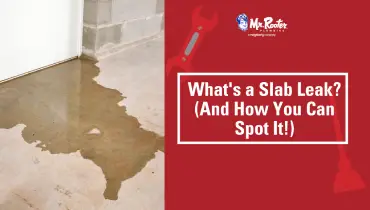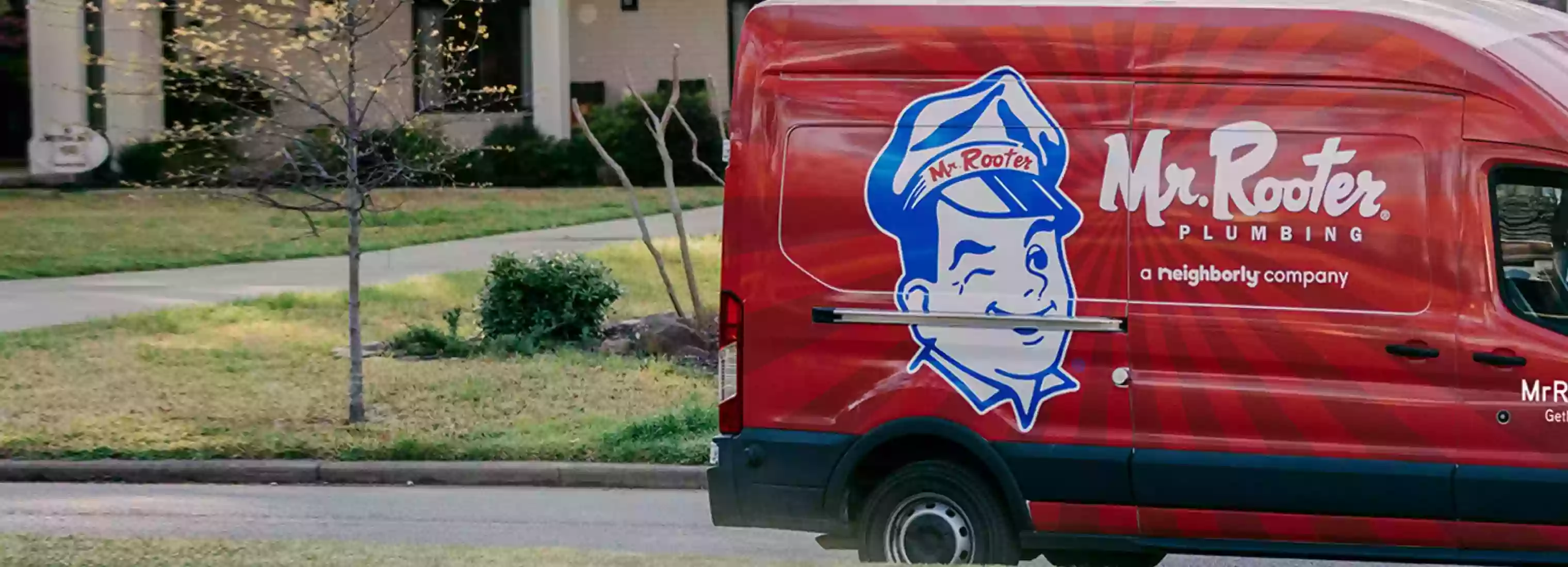What Is a Slab Leak? (And How You Can Spot It)

If your water bill has suddenly skyrocketed but you are not using more water around the house, you might have a slab leak. If you notice standing water at your home's perimeter, you might also have a slab leak. If your house develops cracks in the baseboards or walls and you can hear running water long after a toilet has flushed, this is another sign of a slab leak.
A slab leak can strike hot and cold water lines and happen in any home with a concrete foundation. Below, learn to identify the causes of slab leaks so you can get the proper assistance for them.
What Is a Slab Leak?
A slab leak is a water leak in a concrete slab floor. It occurs when the copper water lines located under your home's concrete foundation spring a leak, usually because of erosion in the pipes. When such leaks happen aboveground, they are called pinhole leaks.
Slab Leak Causes
The most common slab leak causes include:
- Abrasion:If your pipes sit amidst concrete or gravel, they may rub against it as they naturally expand and contract for running water. When they lack proper room to expand, the pipes will wear down.
- Corrosion: Copper pipes surrounded by soil often corrode.
- Foundational shifts: Your home shifts on your foundation, which can put additional pressure on your pipes and spark a leak.
- Poor installation: Pipes that were installed poorly may break down with the force of the house on top of them.
How to Detect a Slab Leak
Slab leaks are more difficult to identify than pipe leak that happens inside the home, which you can see and treat immediately. A slab leak is trickier. You may notice several signs and not realize they are all caused by the same problem. Slab leak detection means identifying symptoms of a problem, which may include:
- Smelling or seeing mold: Basements often develop mildew, but it can be a sign of something bigger. If you smell or see mold, call a plumber to check it out just to be safe.
- Foundation changes: Your foundation will settle and change over the years, but a bigger shift — such as a crack in the foundation — could be a sign of a larger problem. Soil erosion and water damage can contribute to this issue.
- Puddles: Most people assume a puddle in the basement means the hot water heater or washer is leaking, but it may be a slab leak, too. Check all your appliances first to see if they caused the puddle, and if not, immediately call a plumber.
Contact Mr. Rooter Plumbing of Oneida
If you suspect a slab leak, contact Mr. Rooter Plumbing of Oneida. You need to take care of this problem to avoid damage to your home and stem the substantial water bills slab leaks can cause.
We offer emergency and regular maintenance by our trained professionals, who treat your home respectfully. We act as though your home is our own, and we work quickly to solve your problems. Get in touch with us today by
call us or contact us online.
 Click to call
Click to call


